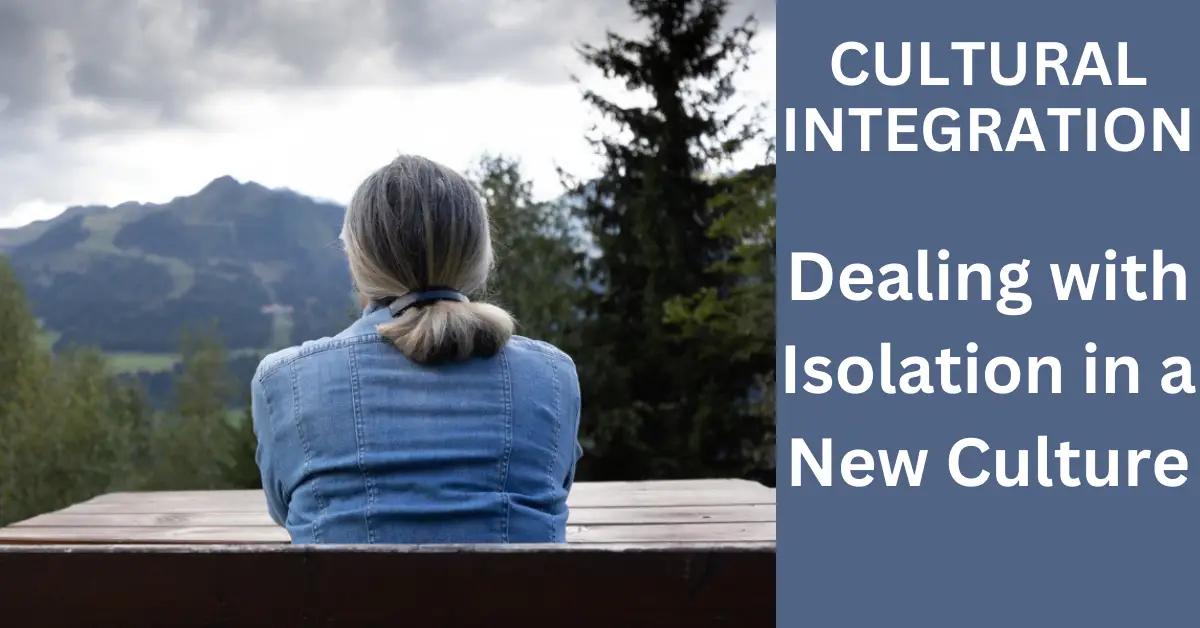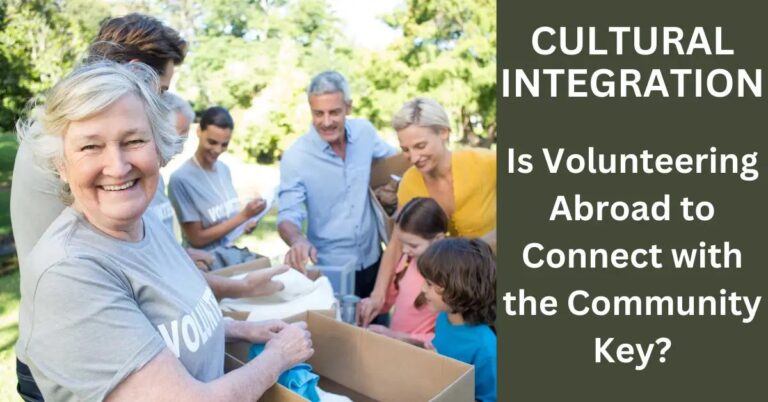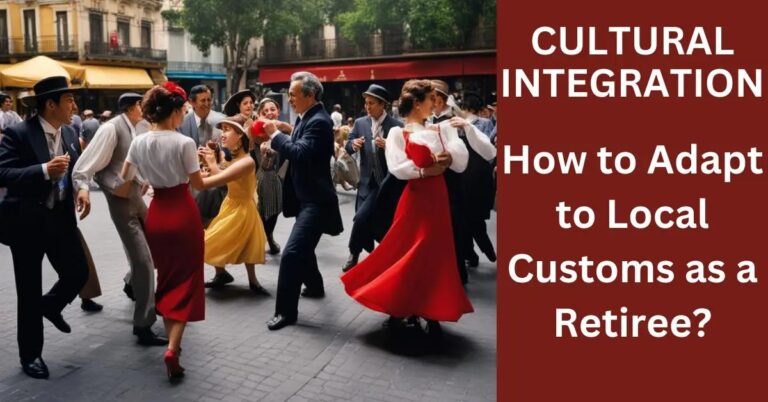TL;DR:
- Recognize and respect cultural differences to reduce isolation.
- Learn local norms and language for smoother integration.
- Join local groups and attend events to connect and build a support network.
- Engage in hobbies and socialize to boost emotional resilience.
- Prepare for and embrace cultural shock as part of the acclimation process.
- Communicate regularly with loved ones while fostering new local connections.
- Practice cultural empathy to understand and engage with different viewpoints.
- Attend cultural events to nurture intercultural communication skills.
- Building empathy enhances personal growth and community harmony.
Moving abroad can be thrilling, but it’s often lonely too. Many expats, myself included, struggle with isolation in a new culture. You leave behind friends and familiar places to face language gaps, unknown cultural norms, and feelings of being an outsider. But you're not alone. Let’s explore how to embrace cultural differences and build connections in your new home. Together, we’ll tackle isolation and find comfort in this shared journey.
How Can You Navigate Cultural Differences to Reduce Isolation?
Coping with isolation in a new culture can feel overwhelming. How to cope with being isolated? The first step is to recognize the cultural differences that might lead to feeling alone. Cultural adjustment can help bridge these gaps.
Moving to a new place means facing unusual things. Some common differences include new food habits, social customs, and language. These can make us feel out of place. To deal with cultural isolation, we need to first identify what makes us uncomfortable.
Understanding cultural values is key. Each culture has its own rules and norms. Learn and respect these local norms to feel more at ease. Being open to learning can help reduce the sense of cultural isolation.
Navigating cultural differences also means tackling language barriers. Overcoming language barriers allows better communication with locals. Practice speaking their language; even simple phrases can make a big difference.
It is also crucial to find ways to fit in. One technique for cultural adjustment is to join local groups or clubs. This can integrate you into the community. Being part of social events builds connections. Finding local activities you enjoy aids in feeling a part of the culture.
Dealing with cultural isolation requires effort and openness. Keeping a positive mind helps to adjust and integrate. Once we embrace the culture, we find joy in new experiences. Identifying and understanding what separates us enables us to connect with those same differences.
What Are Effective Social Integration Strategies for Expats?
Joining expat communities and local groups is key. You can meet people who share interests and understand your journey. These groups host events and meet-ups. I’ve found that attending these events builds a sense of belonging.
To build a strong support network, try to be active. Reach out to others. Invite someone for coffee or a walk. People appreciate the effort. This is how I formed my first social circle.
Making friends with locals can be harder, but it’s worth it. Speak to neighbors, shop owners, or anyone you meet regularly. Learn their names. Ask about local life and share a bit about yourself. Showing genuine interest can deepen relationships.
Social events can ease isolation. Festivals, food fairs, and art exhibits bring people together. When you participate, you learn the culture and meet friendly faces. I remember how joining a local cooking class connected me with kind locals.
How long does it take to acclimate to a new culture? For most, it takes a few months to feel comfortable. Social integration doesn’t happen overnight. By being active and willing to try new things, I felt more at home sooner than I thought possible.
To cope with the stress of social isolation, focus on what you can control. Cultivate patience and stay open to new experiences. When feelings of loneliness creep in, remind yourself that being brave enough to try will pay off. Building a new life in a foreign place is tough, but each step you take helps bridge the gap to belonging.
How Can Expats Cope with Emotional Challenges While Abroad?
Being an expat can make us feel alone and lost. I’ve been there. You might notice you're feeling sad often or miss home more than ever. These are signs of expat loneliness and homesickness. It’s normal to experience these emotions, but it's important to address them early.
Expat loneliness often creeps in when you’re in a new country, away from family and friends. To cope, start by accepting these feelings. You will find many others having the same experience if you talk about it in expat groups. Meeting with others who understand helps build emotional resilience overseas.
Next, focus on building your emotional resilience in new environments. Engage in activities you enjoy and that make you feel good. Find a hobby, join a local club, or take on a new sport. These can boost your mental well-being in foreign lands.
How can you cope with cultural shock? Prepare and research the new culture before arriving, if possible. Pay attention to customs and daily routines. Dealing with cultural shock involves being open and respectful to differences. Celebrate the unique aspects of the local culture and try to find joy in learning something new every day.
Managing homesickness involves keeping in touch with loved ones. Schedule regular calls with your family and friends. However, don’t forget to invest time in making new connections. These small steps will significantly improve your emotional well-being overseas.
Finally, create a supportive network to maintain mental health. Reach out to local support groups, or look for online forums where expats share experiences. Remember that building a support system takes time, but it’s vital for resilience while living abroad.
What Role Does Cultural Empathy Play in Reducing Isolation?
Cultural empathy helps me connect with local people. It means I try to see things from their viewpoint. I use cultural empathy to understand their lives better. To build this skill, I first learn about their customs and ways of life. This knowledge helps me reduce stereotypes.
My intercultural communication skills improve as I practice empathy. I listen well and share ideas clearly. This opens me up to multicultural dynamics and new ways of communication. I realize that every culture has unique traits. By embracing these differences, I become better at expressing myself.
Understanding diverse cultural contexts means knowing what shapes a society. A culture that tolerates a high level of ambiguity in communication values flexibility. This acceptance of uncertainty allows for richer social interactions. I learn to adapt and respond kindly to different situations.
Fostering international relationships helps make new connections. I create strong bonds by showing interest in others' traditions and beliefs. Sharing common goals helps in bridging gaps, and I start to see the world in a new light.
I take practical steps to foster empathy and appreciate cultural diversity. I attend cultural events and share meals with locals. Actively participating in their festivals builds trust and interaction. These activities ease the feeling of isolation by making me part of their world.
Cultural context is key to understanding how people live their lives. By valuing diverse perspectives, I find new friendships and a sense of belonging. Through empathy, I grow personally and help create a harmonious community around me.
Conclusion
Transitioning to a new culture presents both challenges and exciting opportunities. By understanding cultural differences, overcoming language barriers, and respecting local values, you can reduce feelings of isolation. Building support networks and participating in local events enhance social integration. Emotional resilience is key to managing homesickness and cultural shock. Finally, fostering cultural empathy helps build stronger intercultural relationships. Embrace the journey and value every connection, as they enrich your global experience. Your new life abroad can be fulfilling with the right strategies.












